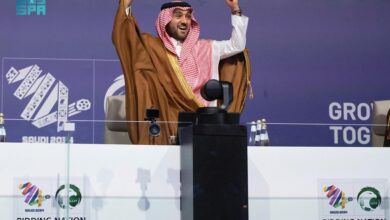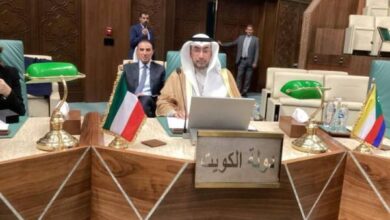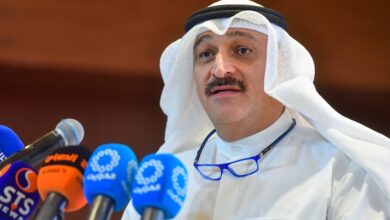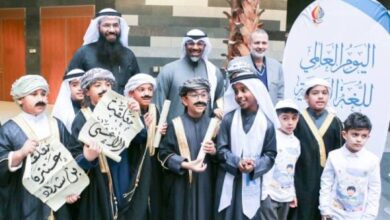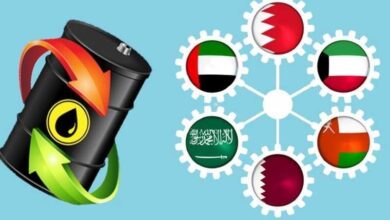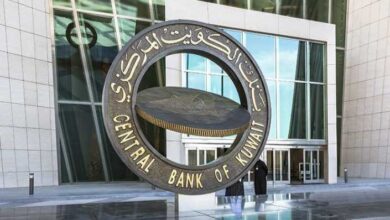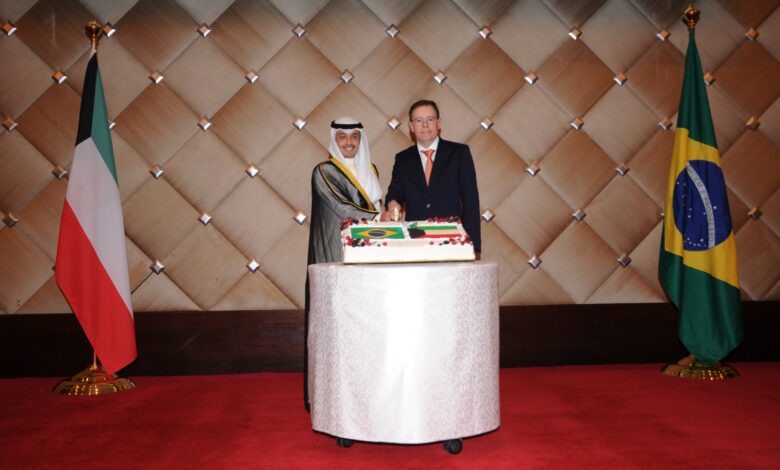
Brazilian Ambassador H.E. Rodrigo d’Araújo Gabsch, emphasized that his country and Kuwait are on the right track to achieve the highest trade value since the last ten years, which is a testament to the dynamism of their bilateral relations.
In his address on the occasion of the celebration of his country’s National Day and in the presence of Assistant Foreign Minister for American Affairs Nawaf Al-Ahmad and members of the diplomatic corps he said that the relations between the two countries are strong and solid to serve the interests of the two peoples, noting that his country will celebrate next year the fiftieth anniversary since the opening of Brazil’s embassy in Kuwait.

He pointed out that Brazil’s relations with their Kuwaiti partners have been strengthened through the recent meeting of their foreign ministers on the sidelines of the dialogue between the Gulf Cooperation Council countries and Brazil earlier this month, noting that it was an excellent opportunity to discuss international, regional and bilateral issues and help push their bilateral agenda forward.
Elaborating he said Brazil was proud to be an important partner of Kuwait in the field of food security, and for Kuwait to be a major partner in our energy security.

He pointed to the common principles that guide the foreign policy of both our countries, such as cooperation as a tool for development, non-interference in the affairs of states, and the peaceful resolution of disputes, stressing that the friendship between Kuwait and Brazil will undoubtedly continue to flourish, as our countries strive for development and justice.
In his speech, he stated that Brazil was rich in cultural traditions, artistic expression, beliefs, and ecosystems, and is diverse in every sense of the word, and from this diversity emerged a large, complex and developed society, consisting of a multifaceted people of different races, beliefs and origins. This diversity was the source of their strength.
He added that Brazil has a large area, one of the largest in the world, and a large population, exceeding 210 million people. It also has a strong economy – last year Brazil’s economy was among the ten largest economies on the planet. Over the past fifty years, thanks to research and development in the field of tropical agriculture, Brazil has become the third largest exporter of agricultural products in the world. He said that his country is also one of the largest producers of renewable energy, with 85% of their electricity being renewable. 90% of Brazil’s cars can be powered by gasoline or sustainable ethanol from sugarcane, or a mix of both.
“We are aware of our strengths; we are also aware of the challenges we face. We are addressing the challenges of inequality and poverty with innovative social programs designed to protect younger generations and empower our citizens.” He added
Brazilian Initiative
He further elaborated that Brazil’s experience with social programs such as the National School Meals Program and the Bolsa Família Program (an award-winning conditional cash transfer program) would be valuable for a new initiative that the G20 will launch next November, under the Brazilian presidency.
He explained that the G20 Global Alliance Against Hunger and Poverty initiative aimed to facilitate and mobilize knowledge and financial resources to enable the widespread implementation of public policies to address these problems. This process will be led by countries requesting cooperation, especially those most affected by hunger and extreme poverty, noting that it will be open to anyone who wants to join this effort.











